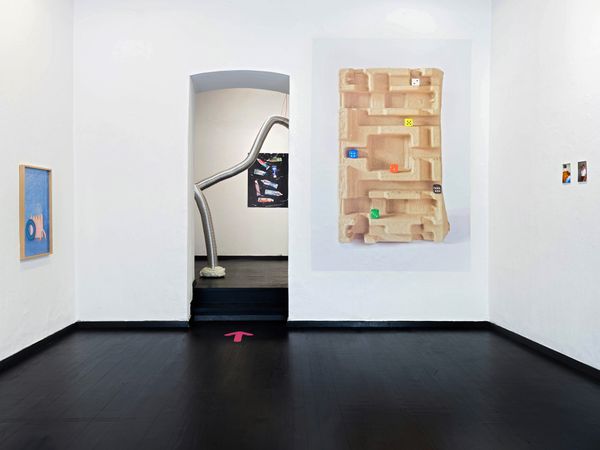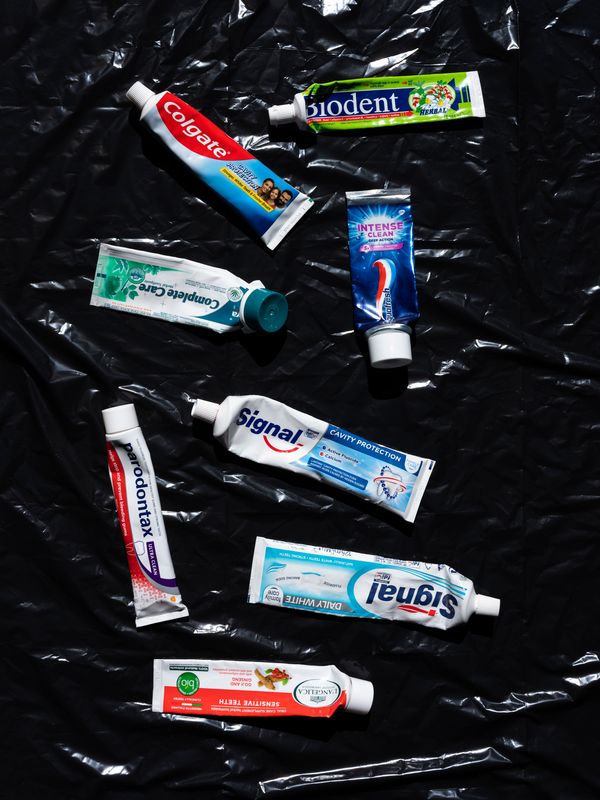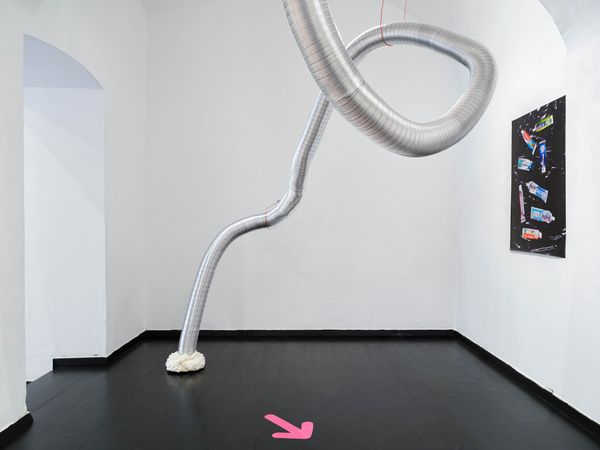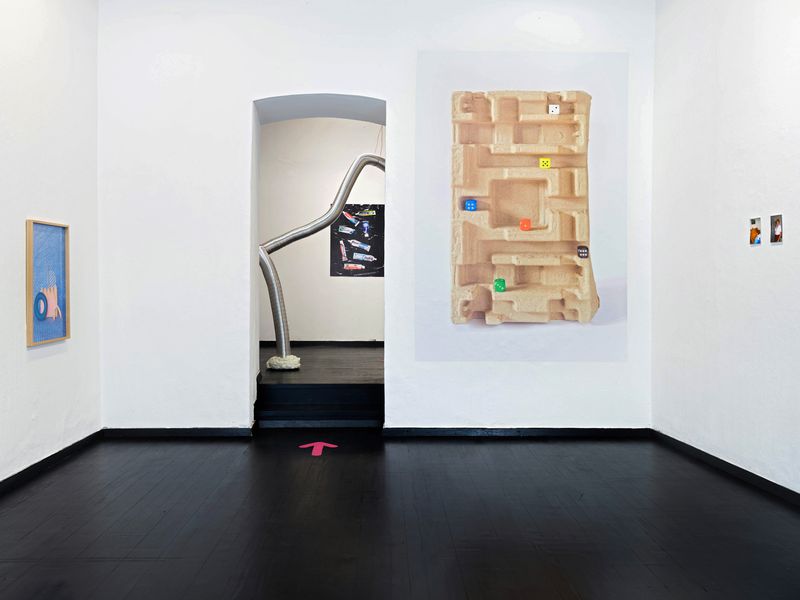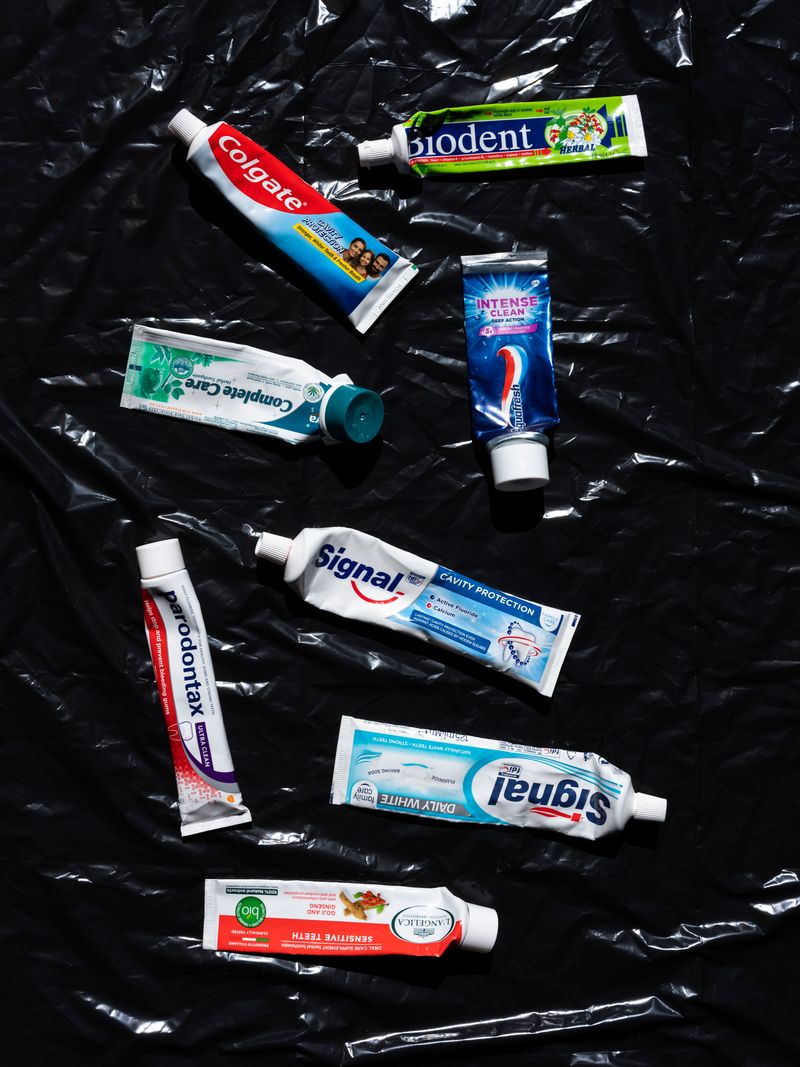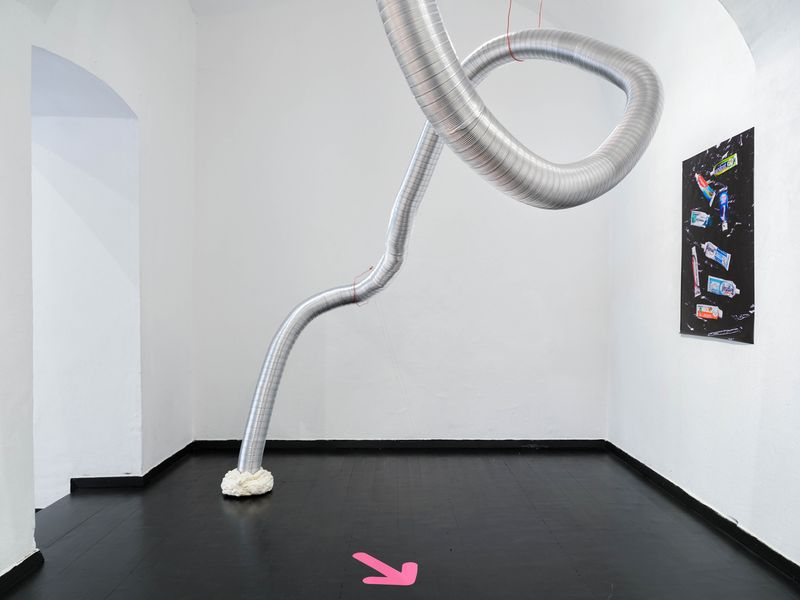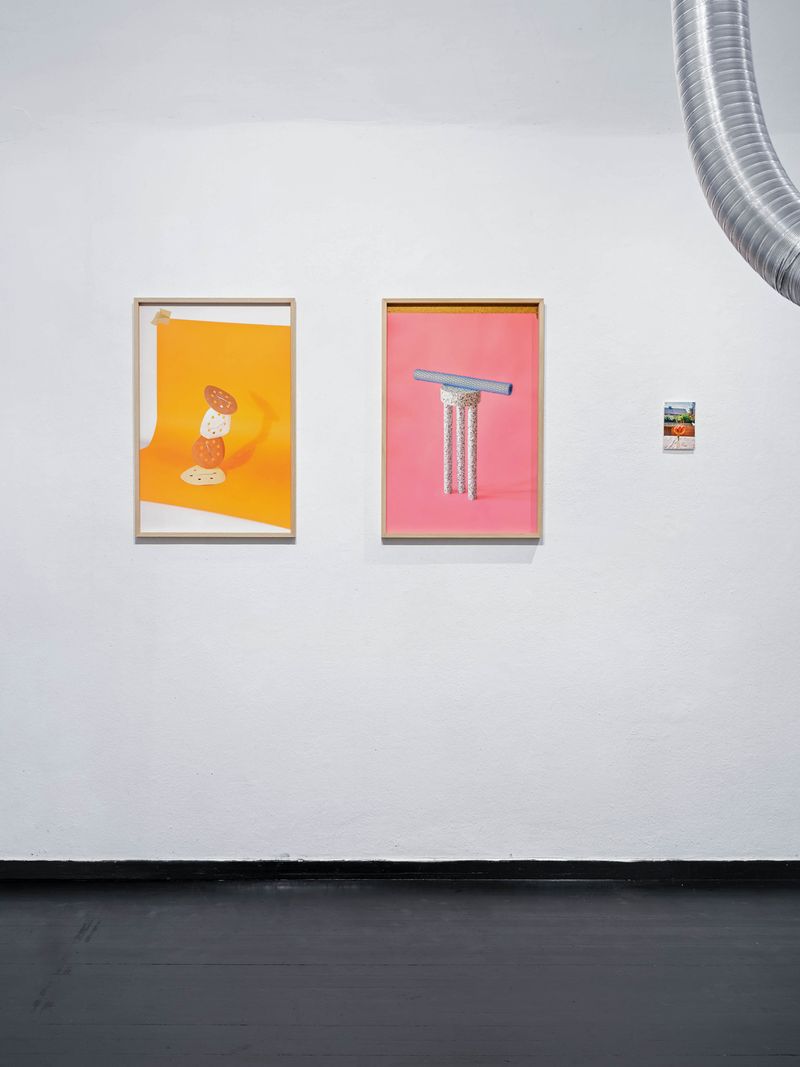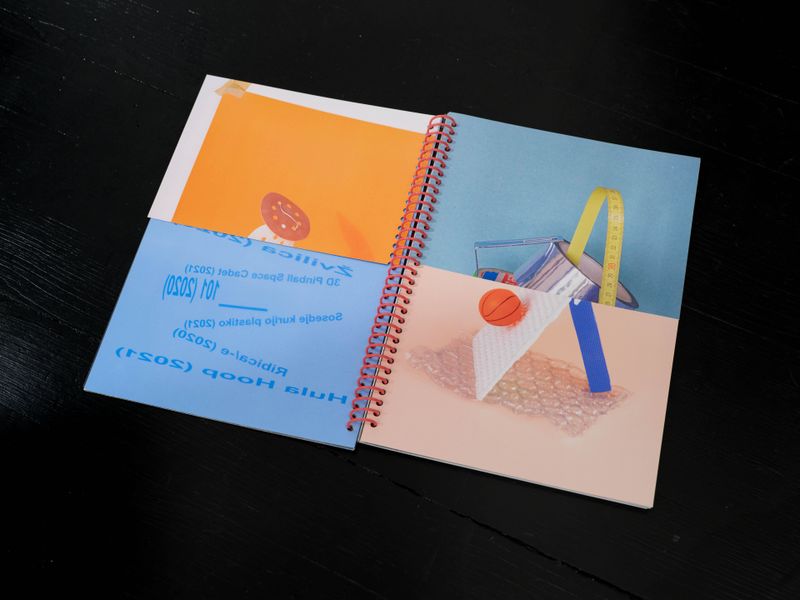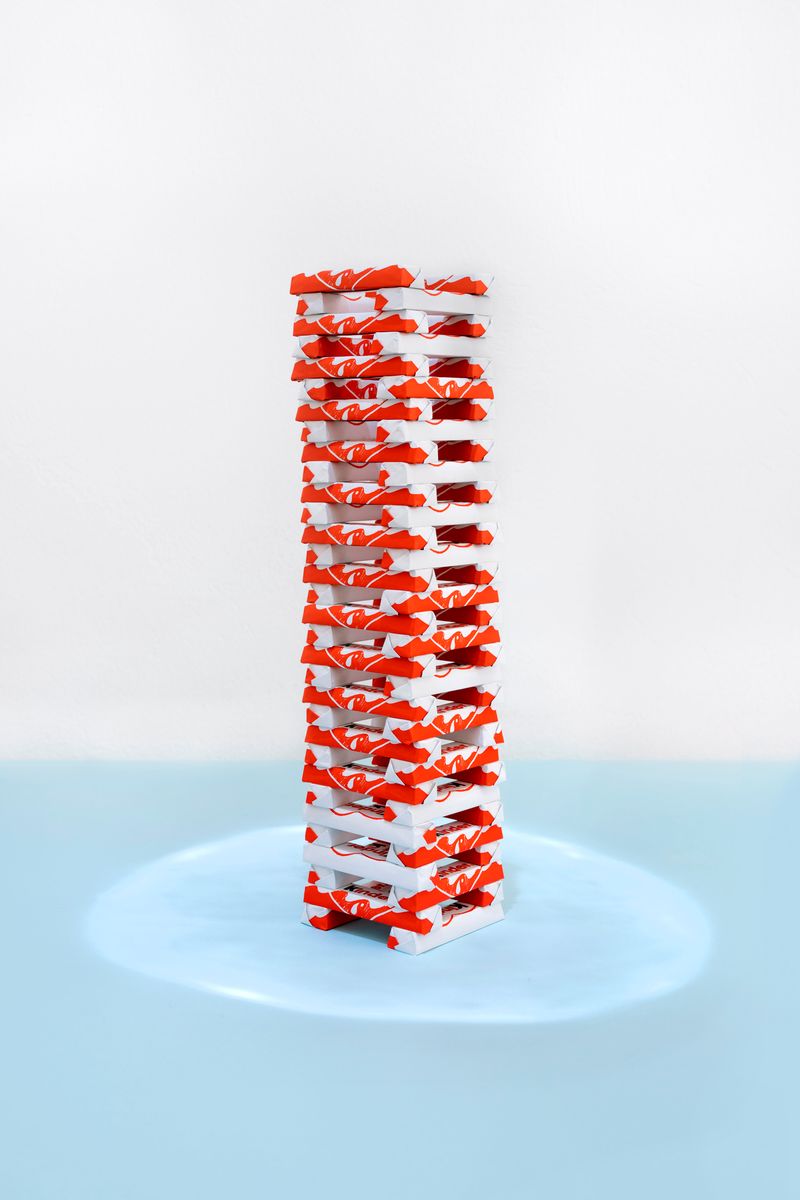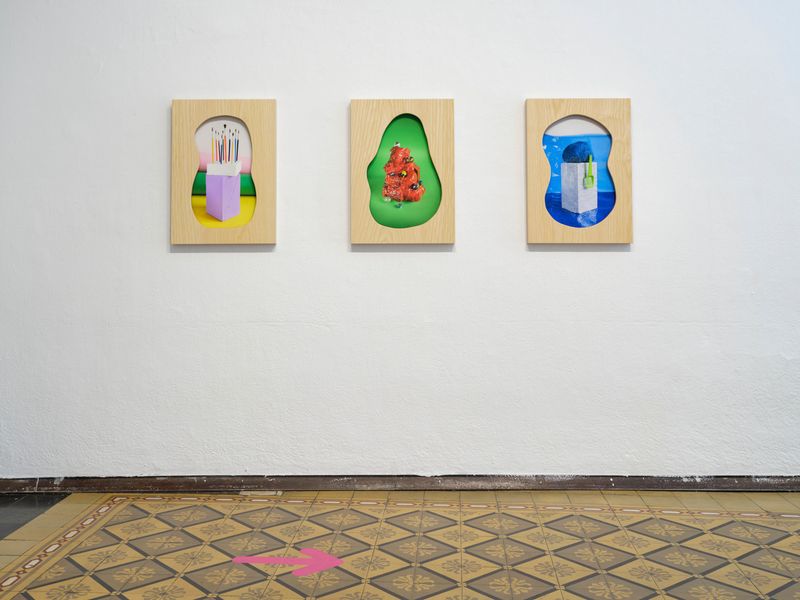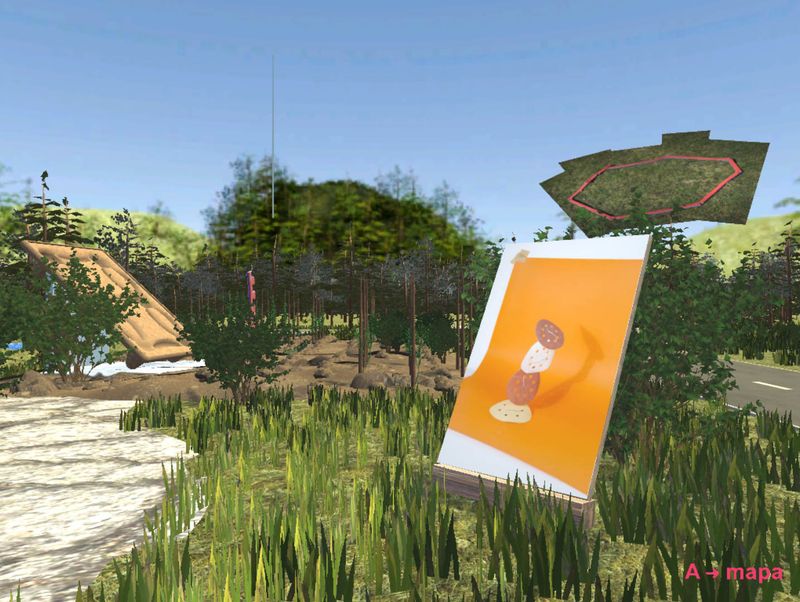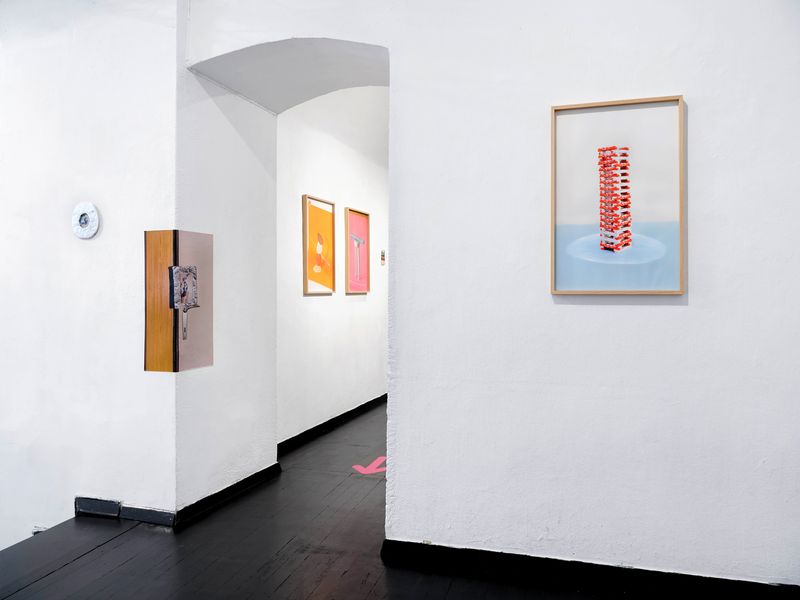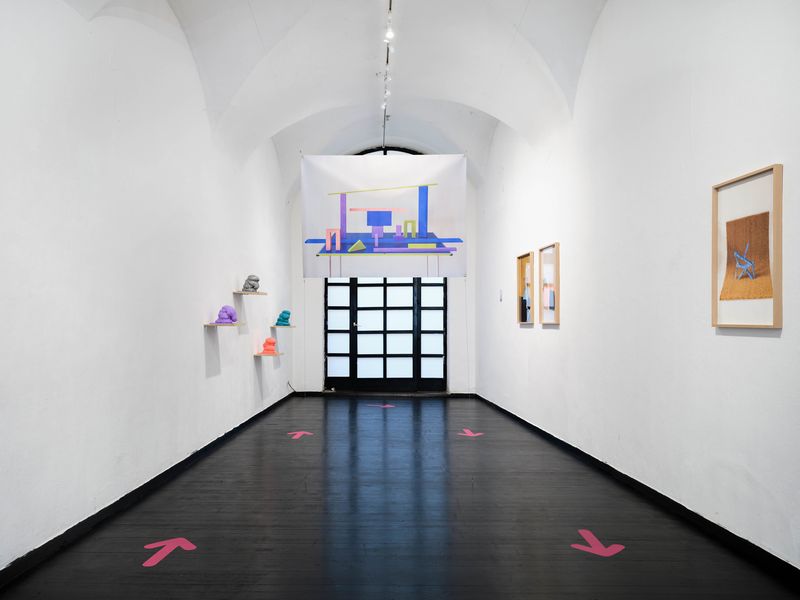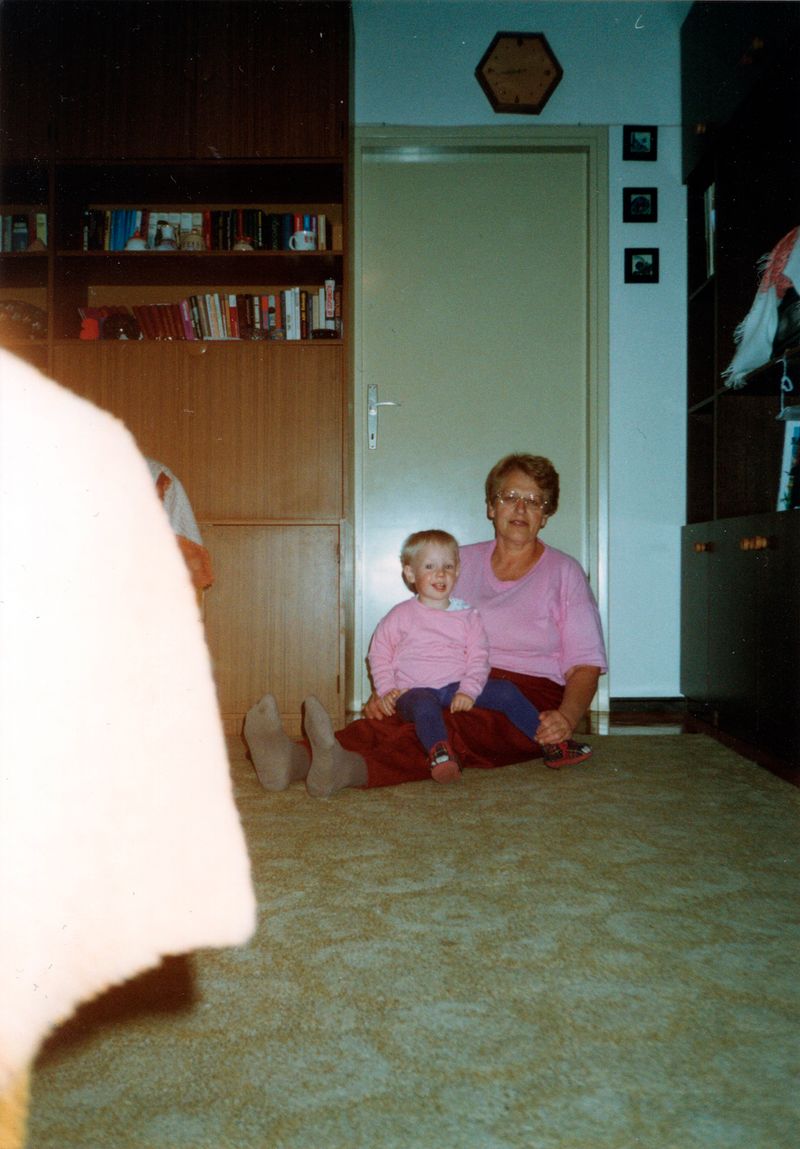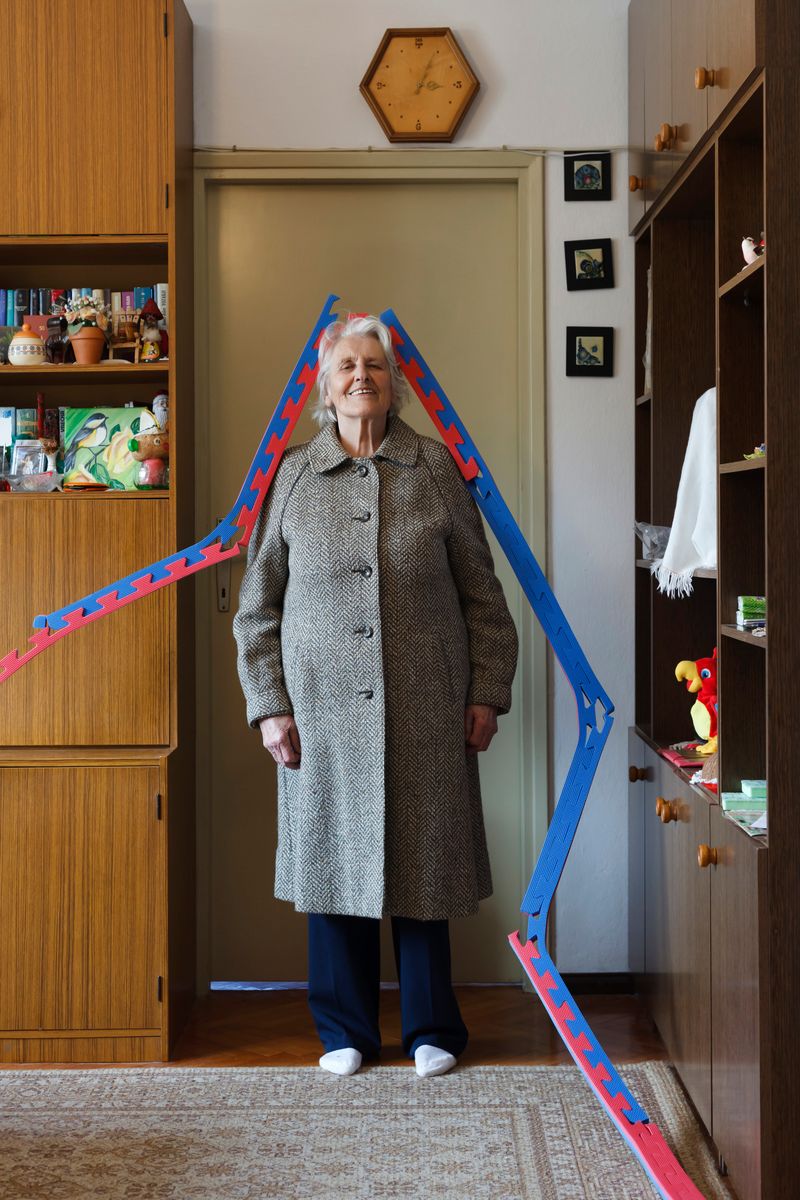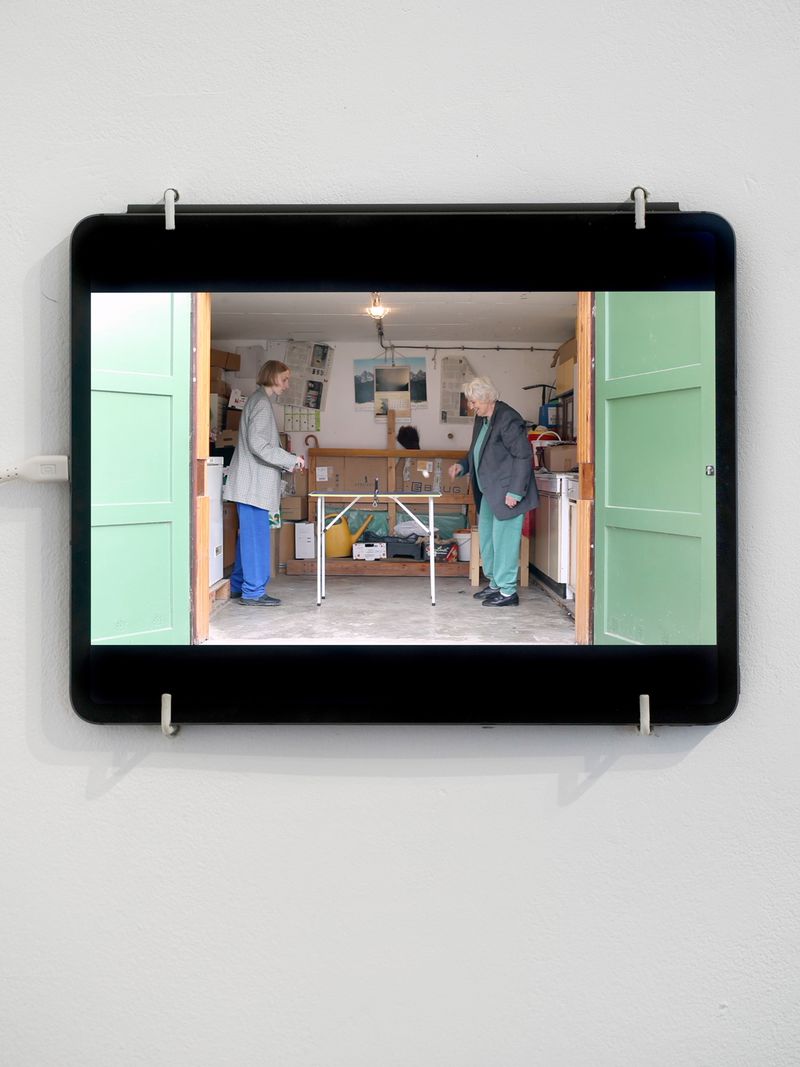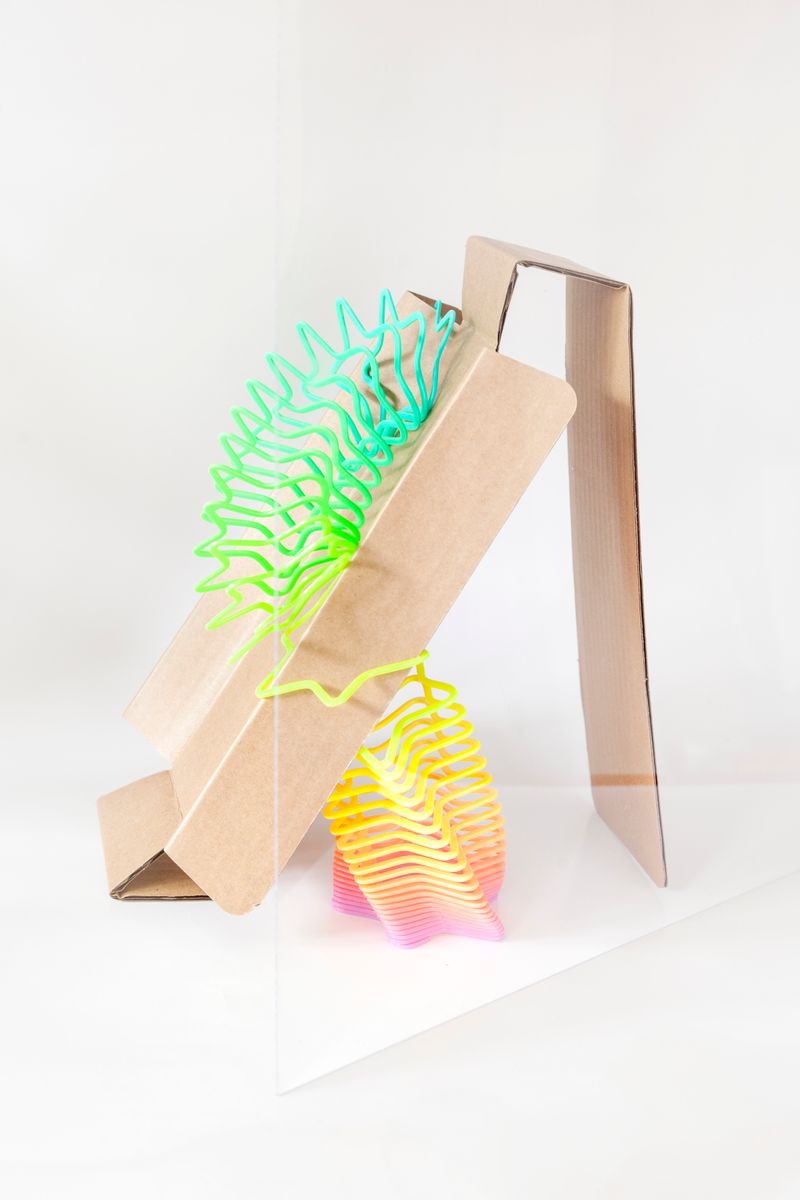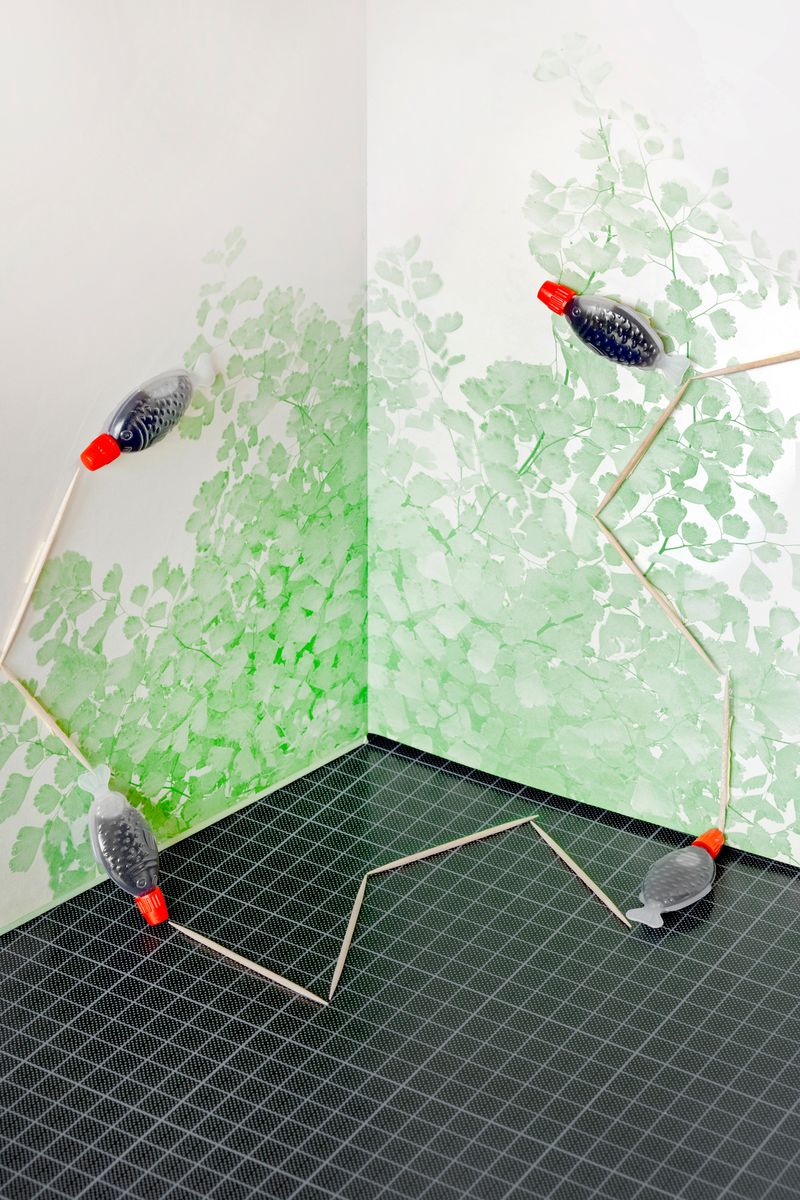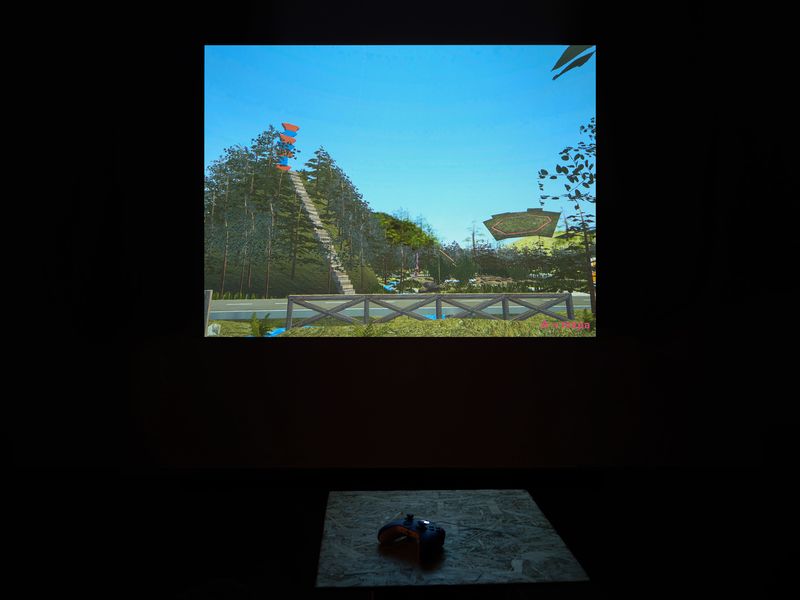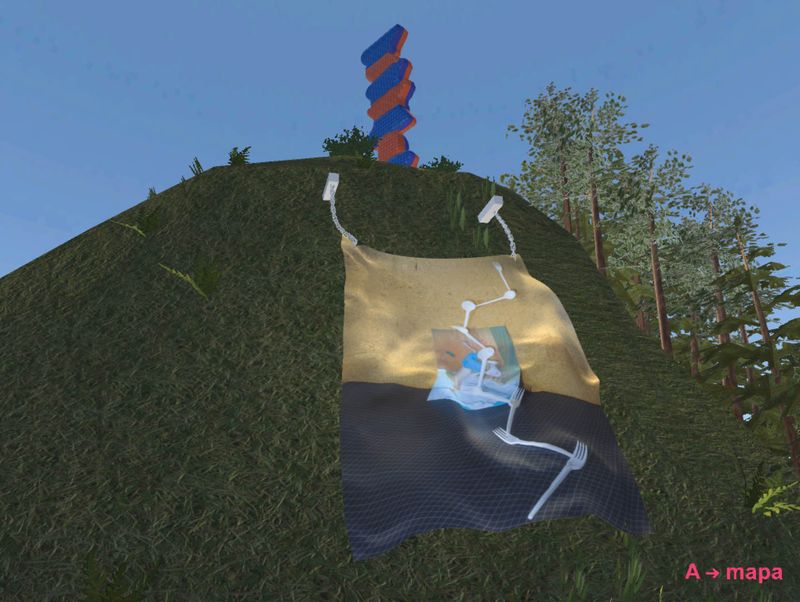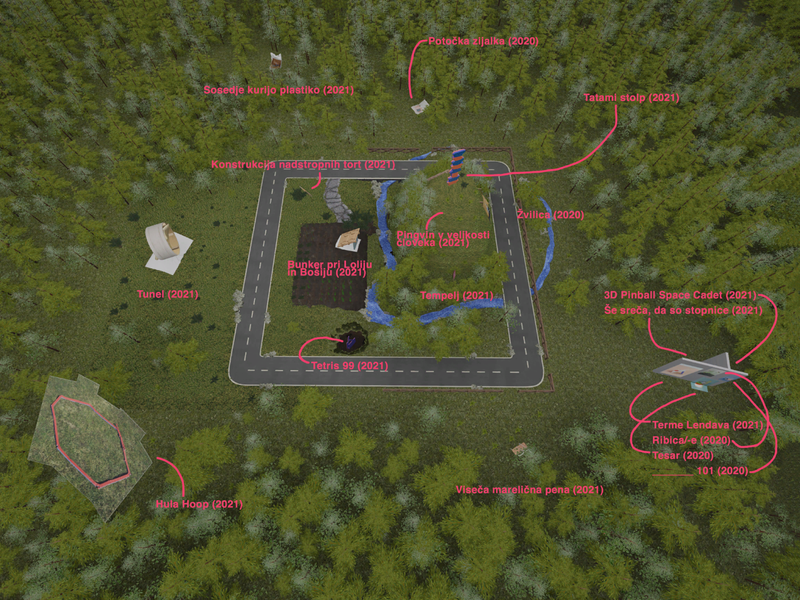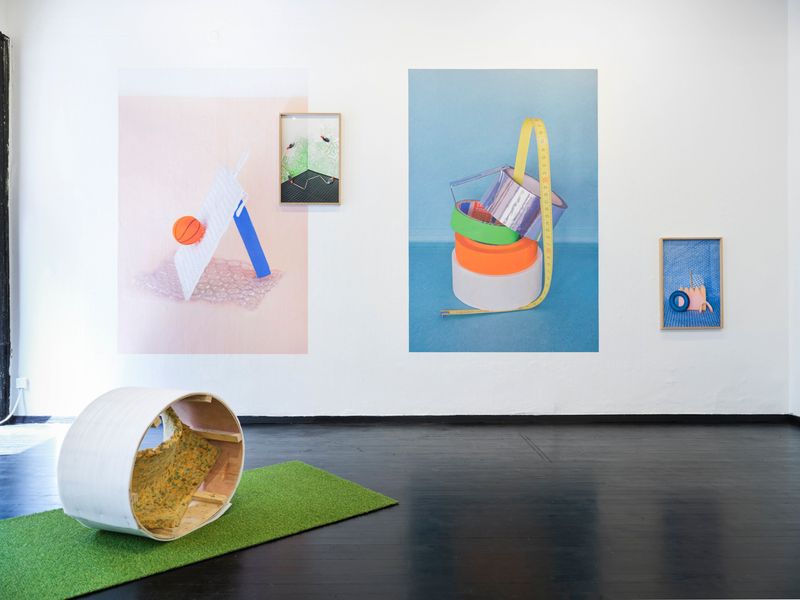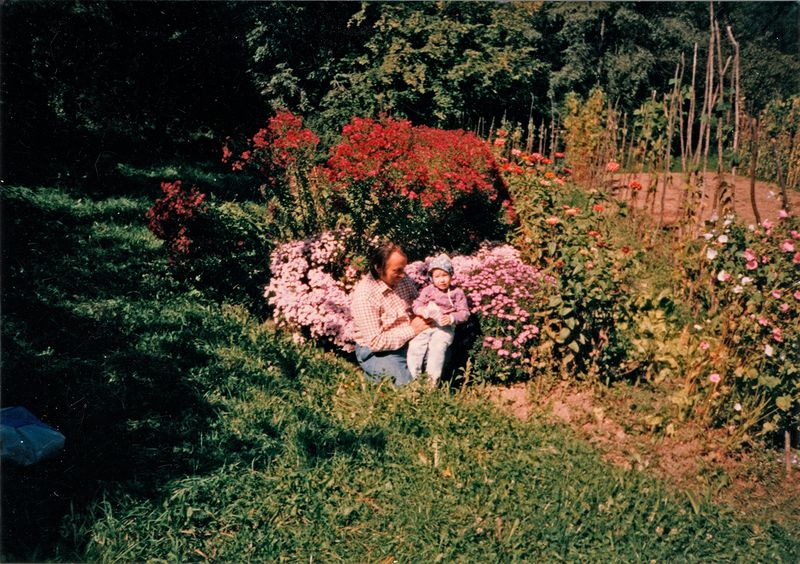Superpositions
-
Dates2020 - 2022
-
Author
- Topics Archive, Daily Life, Documentary, Fine Art, Photobooks, Social Issues, Studio
- Locations Slovenia, Ljubljana, Mozirje, Gornji Grad
In geology, the rule of superposition is a term for the method of determining the age of fossils, which follows the rule that younger sedimentary layers are always deposited on older ones.
In geology, the rule of superposition is a term for the method of determining the age of fossils, which follows the rule that younger sedimentary layers are always deposited on older ones. Lucija Rosc uses this term to describe her work because, in her version of superpositions, the new always emerges in relation to the old. By exploring the meaning of archiving and preserving objects from her family environment, she creates a family album, a mixture of photographic compositions from seemingly random objects and her artistic interventions. In the solo exhibition at Škuc Gallery, she presents photographic works, this time combining them with an installation, a video and an interactive video game, while the multimedia exhibition establishes a relationship between her memories and childhood impressions as well as her current aesthetic.
In these works, the artist explicitly shows the intimate side of her work for the first time by placing her recognisably vivid compositions next to the family photos of her grandparents from her early childhood. It was precisely her grandparents who had a decisive influence on her art practice through their constant collecting of a variety of objects, based on the glorification of seemingly useless or uninteresting everyday objects. The assortments of various materials that come from or remind her of her childhood occupy a central place in her compositions. Whether they are a handful of marbles, brushes, a plastic toy or an old skipping rope, they become autonomous subjects in strikingly lit constructions. Reminiscent of advertising photography, her photographic approach with dazzling lighting always functions like a game, choosing simple (but, for the artist, sentimental) objects.
In addition to the photographic compositions through which Rosc builds her recognisable aesthetic, the exhibition Superpositions focuses more than ever on the concept of memory and the creation of fictional narratives. In the video game Udén,[1] the setting of her childhood is her grandparents’ field in the Upper Savinja Valley, which they have rented since before she was born. The staging of her past is literally interwoven with her current artwork, as photographs and objects appear in the space of the virtual field as giant coordinate points, and a walk through the virtual world is reminiscent of a psychedelic march through the artist’s subconscious. New works are deposited as old memories, interrupting the peaceful space of the family field in a dizzying version of a “virtual exhibition”. Rosc uses a mixture of realities to represent a child’s view of the world, combining multiple layers of her own memory, which is inherently unreliable and biased. The space where she spent so much time as a child thus becomes a scene of play with distortions, where the viewer enters the artist’s construction of her own memory.
Lucija Rosc’s digital photographs are seemingly nonsensical and anarchic, but nostalgic in their essence, which is further emphasised by the accompanying analogue photographs of family members, which in this combination form a unique family album. The practice of creating a family album is a relatively recent way to form collective memory; it developed with the accessibility of the medium of photography in the late 19th century. Creating shared memory within the family often meant a ritual of viewing photographs together, which reinforced the concept of idealising the family image and family bonds. Family memory is built collectively, through communication and interaction that is added to and built upon over time. The essence of creating family memory is the accumulation of artefacts whose nostalgic value allows the image of the family circle to be presented in the light that the individual chooses.
The guiding question in the work of Lucija Rosc is therefore always how to transform childhood memories into a visual image and how to stage naive, misleading and fleeting impressions in the present. In contemporary photography, the question of the (un)reliability of memory has already been taken up many times. Lucija Rosc uses elements in her visual constructions that trigger a moment of recognition and identification in the viewer and at the same time awaken the desire to return to the childlike world of exploration, discovery and fantasy by introducing playful gaze diversions.[2]
In such a way, both the artist’s work process and its echo in the spatial setting function as allusions to child play. Rosc acts instinctively, seemingly without order, but nevertheless with her own rules and restrictions. She combines everyday materials and prefabricated objects without excessive rationalisation, and it is precisely their non-functionality and banality that give the objects added value, make them interesting and bring humour to the works. Rosc explores the formulation of memory by questioning the boundary between photograph and object, the photographed object and its placement in the space – photographs, like memory, are often a field for the staging of reality, which is highlighted by the actual objects displayed alongside the photographs that often reveal false dimensions, materials and functions. With this kind of juxtaposition, Rosc wants to draw attention to the unreliability of memory and the idealisation of childhood, but above all to the fact that the present can never exist independently of our past.
Curator: Hana Čeferin
___________
[1]The word udén in the Upper Savinja dialect means “some time ago” or “that day”.
[2] The Norwegian photographer Torbjørn Rødland, for example, in his book Confabulations, which shows reinterpreted photographs of children’s fantasies and memories, emphasised the tactility of the image, which can evoke fictitious memories and even physical feelings. (Rødland, Torbjørn. 2016. Confabulations. London: Mack).
More photos of the project + exhibition photographs: https://lucijarosc.com/Superpozicije
Virtual space walkthrough: https://vimeo.com/752108707
